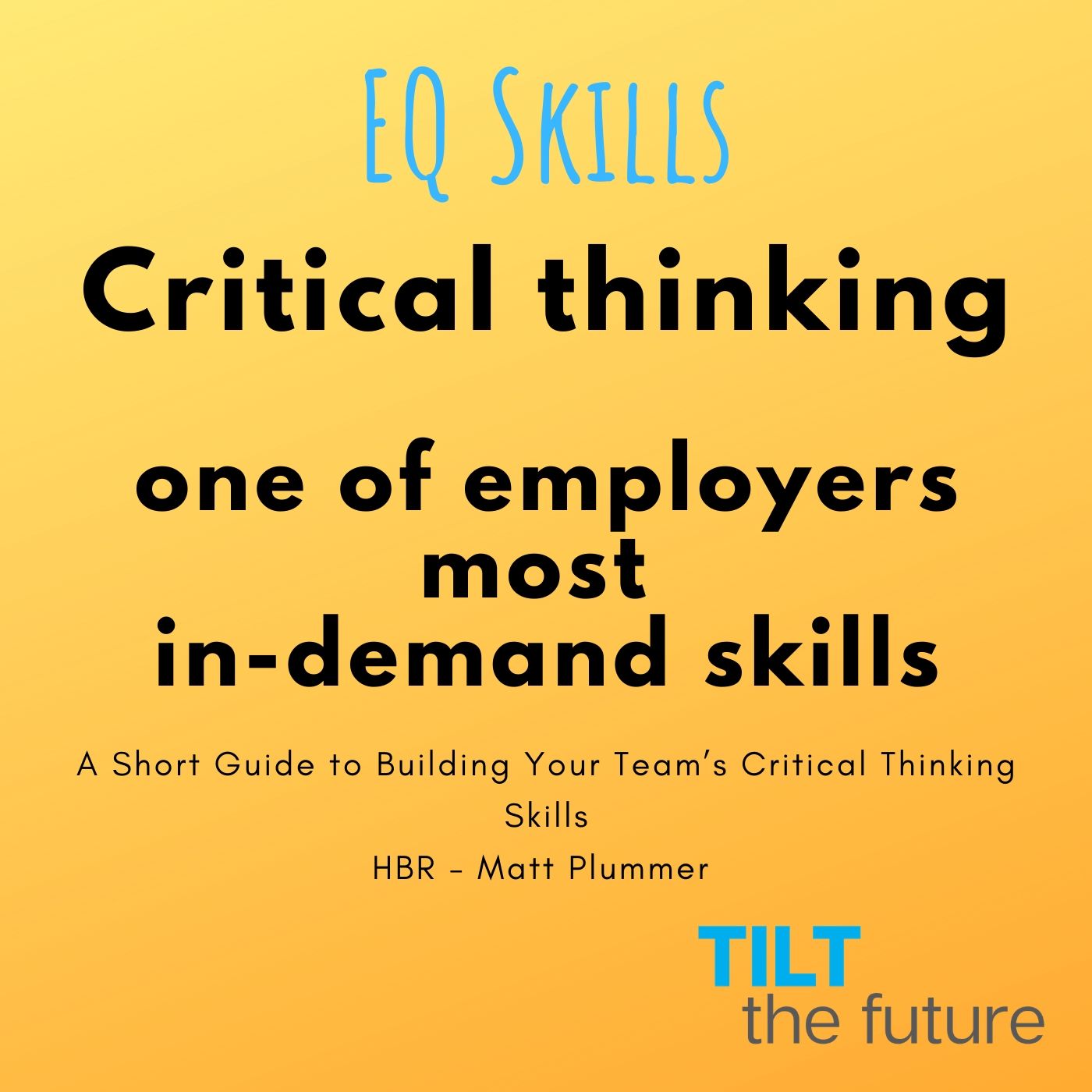
05 Nov The skill employers are searching for
E31: 4:17 min listen, 3 min read
Why employers are searching for Critical Thinking
This is a conversation about critical thinking, one of the special EQ (emotional quotient) skills.
Boost your employability
‘This soft skill will boost your employability‘ was the clickbait title of a WEF article. So, naturally, I clicked.
And that skill? Critical thinking.
In a very volatile and evolving Future of Work world employers are on the hunt for this elusive skill.
Staff with good critical thinking skills display that peculiar ability to do mental gymnastics. They are able to process a variety of subject matter areas and make obtuse connections that may not be immediately clear to others.
And then, they are able to articulate those and take independent action.
Little wonder that this is the EQ skill that most employers are seeking – a combination of independence, confidence, creativity. And in a gig economy world of short projects and flat hierarchies, identifying talent that can self-start can boost productivity and innovation.
Nature or Nurture?
As with all the EQ skills, there are some people born with these skills. But for the rest, these crucial skills can be nurtured.
Matt Plummer, the founder of Zarvana, published an article in HBR titled ‘A Short Guide to Building Your Team’s Critical Thinking Skills‘.
He laid out a rubric.
A clear progression exists from one stage of mastery to the next. Critical thinking becomes a possibility when we are sufficiently proficient in the basics, but also have the creativity to see how that can be changed or tweaked to meet other needs. That journey takes us through the following stages:
- Execute – being able to take action on an instruction
- Synthesize – identifying what is important
- Recommend – deciding and articulating what can be done
- Generate – the ability to create something out of nothing
If we practice critical thinking skills, then we will get better at making thoughtful independent decisions, quickly.
And that is what today’s employer is seeking.
Next steps
Read the articles above and come back to share your thoughts here and with others around you. Millennials, Gen Z, parents, educators or employers, what did you think?
- How does a candidate imply that they possess this valuable skill to a prospective employer?
Related episodes in the EQ series:
- E30: Sully & Critical Thinking – some famous examples of critical thinking
- E32: If ‘thinking outside the box‘ is the idiom that best describes critical thinking, you first have to define your box
Did you find this information valuable? Please share it with others, engage in the discussion on this site or on LinkedIn, and let us know by rating, commenting & following the podcast.



No Comments